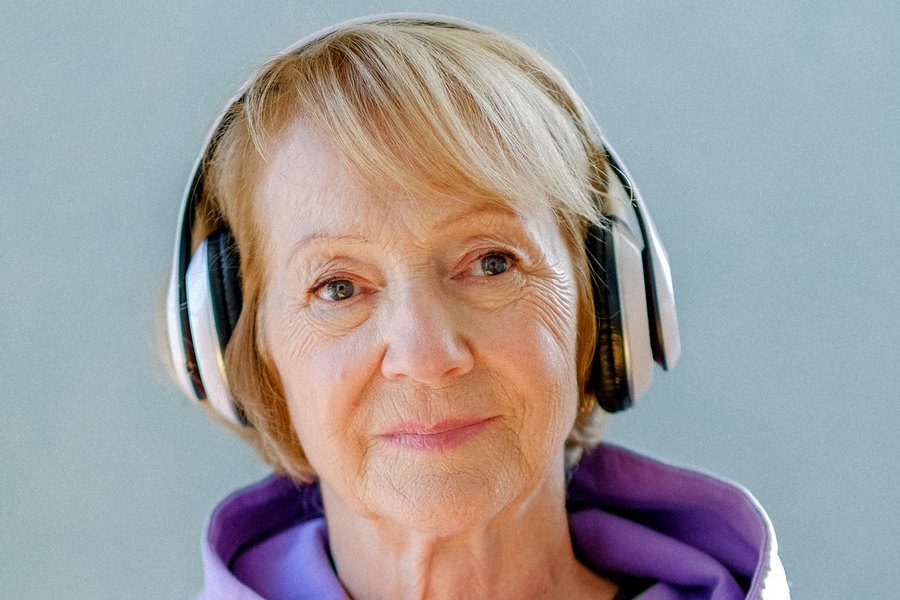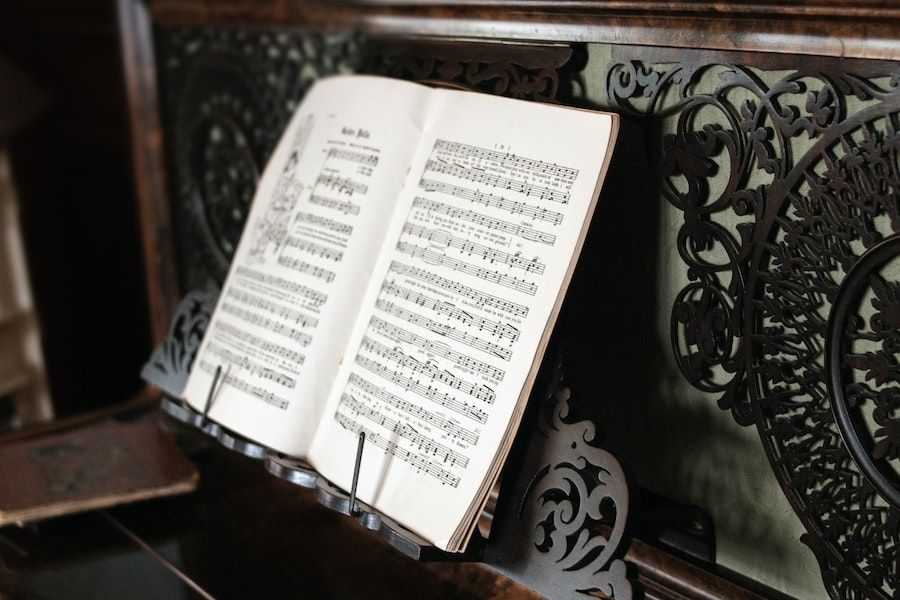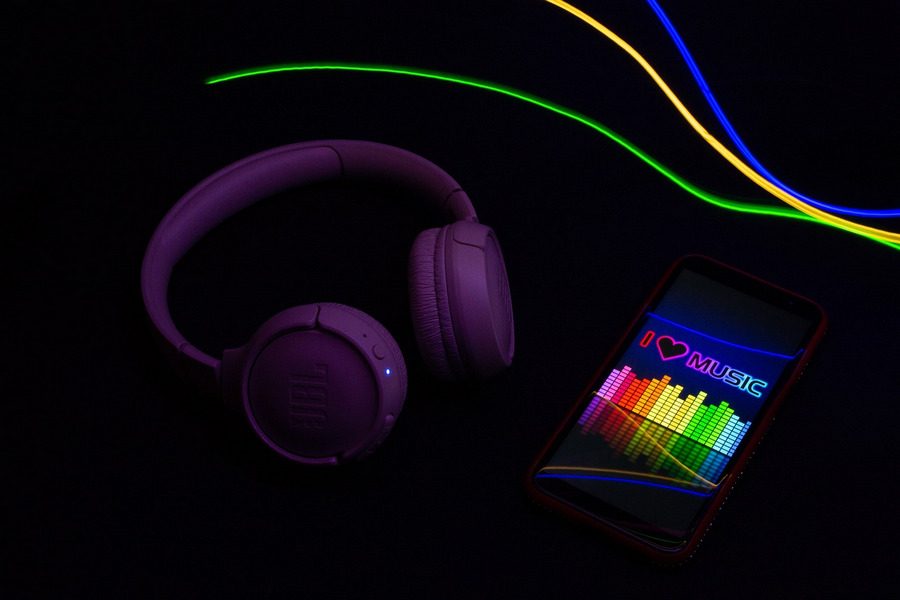Together, music and memory care are powerful therapeutic tools to improve the lives of individuals who have memory loss, such as Alzheimer’s and dementia.
Research has shown that music can activate parts of the brain that are often still functioning, even in advanced stages of memory loss, and can help trigger memories and emotions.
Providing individuals with personalized playlists of familiar music, music and memory care has successfully improved communication, reduced agitation and anxiety, and promoted joy and engagement in those struggling with memory loss.
It is a simple yet powerful tool that can bring comfort and improve the quality of life for those in memory care.
We will cover some benefits of music therapy and how to use it with other memory care activities to improve the lives of seniors with memory loss.

The Science Behind Music and Memory Care
The relationship between music and memory care is complex, and scientists are still trying to understand the underlying mechanisms. However, several studies have provided insight into how music can help with memory care for seniors.
One of the fundamental mechanisms behind music and memory is activating multiple brain areas. For example, music can activate the auditory cortex, which processes sound and speech, as well as the hippocampus, which handles memory formation and retrieval.
Additionally, music can activate other areas of the brain, such as the prefrontal cortex, which is involved in emotional regulation, and the cerebellum, which is involved in motor coordination. This means that music can have a wide-ranging impact on the brain and stimulate various memories.
Another mechanism behind music and memory is the emotional connection that music can create. Music can evoke strong emotions and memories associated with specific events, people, and places. This is beneficial for seniors with dementia, who may have difficulty communicating their feelings in other ways. In addition, music can provide a sense of familiarity and comfort, helping to ease feelings of anxiety and confusion.
We can also use music as memory rehearsal, strengthening memories by repeating them. This is beneficial for seniors who are struggling to retain new information. Listening to a particular song or piece of music repeatedly can help embed it in the senior’s memory, making it easier to recall later.
Music can also help to improve cognitive function among seniors. Studies have shown that listening to music can increase blood flow to the brain, improving cognitive function. In addition, interactive music activities such as playing instruments or singing can help to improve hand-eye coordination, fine motor skills, and cognitive processing. This can be especially beneficial for seniors with memory loss, as it can help to slow down the progression of the condition.
In addition, the effects of music on memory can vary depending on the individual. For example, some seniors may respond better to classical music, while others may prefer more upbeat or contemporary music. Therefore, caregivers should work closely with seniors and their families to understand their preferences and tailor the music accordingly.
In conclusion, the science behind music and memory is still being studied and understood, but it’s clear that music can positively impact memory care for seniors. It can activate multiple brain areas, evoke emotional connections, serve as memory rehearsal, and improve cognitive function.
Caregivers should use it with other memory care activities, and work closely with seniors and their families to understand their preferences and tailor the music accordingly.

Types of Music for Seniors in Memory Care
Music plays a vital role in stimulating the brain and can be an effective tool for seniors with memory loss. However, different music can have other effects on memory, and caregivers need to understand the different options available and how to use them effectively.
Researchers recommend classical music for memory care because it is complex and structured, which can help to exercise the brain. In addition, studies have shown that listening to classical music can improve memory and cognitive function in seniors. However, it’s important to note that not all seniors may enjoy classical music, so it is crucial to consider their personal preferences.
Folk music can also be a valuable tool for memory care. It can evoke memories of a particular culture or time and stimulate memories of an individual’s past. Folk music can benefit seniors who have memories of different cultures, religions, and languages.
Music from the individual’s past can also be effective in memory care. Personal memories are often deeply ingrained, and listening to songs from their youth can stimulate memories of specific events, people, and places. Caregivers can create playlists of the senior’s favorite songs from their past, or even encourage them to sing along with the songs.
Interactive music activities such as singing, playing instruments, or even dancing can also be effective in memory care. These activities provide a sense of purpose, accomplishment, and social interaction, which can benefit seniors with memory loss.
In summary, the key to successful memory care through music is understanding the senior’s preferences and adapting the music accordingly. Whether it’s classical music, folk music, songs from the past, or interactive music activities, the goal is to use music to stimulate memories and provide comfort and enjoyment. Caregivers should work closely with seniors and their families to tailor the music to their specific needs and preferences.

How to Use Music for Memory Care
Incorporating music into memory care can be a simple and effective way to improve the lives of seniors with memory loss. However, there are several ways to use music for memory care, and caregivers must understand the options available and how to use them effectively.
Create Playlists – One of the most straightforward ways to use music for memory care is by creating playlists of the senior’s favorite songs from their past. They can play these playlists during daily activities, such as meals or quiet time to provide a sense of familiarity and comfort.
Sing-Alongs – Caregivers can also encourage seniors to sing along with the songs, as singing can be especially beneficial for memory care.
Group sing-alongs can also be an effective way to use music for memory care. This can be done in a group setting, such as a nursing home or assisted living facility, where seniors can come together to sing and enjoy music together.
This can provide a sense of community and social interaction, which can benefit seniors with memory loss.
Interactive Music Activities – Playing instruments, singing, or dancing can also be effective in memory care. These activities can provide a sense of purpose, accomplishment, and social interaction, which can be beneficial for seniors with memory loss.
Music Therapists – Caregivers can work with a music therapist to provide these activities in a group setting or encourage seniors to participate in individual music therapy sessions.
Provide Headphones – Another way to use music for memory care is by providing music to seniors through headphones or earbuds. This can be especially beneficial for seniors who have difficulty hearing, as they can play the music at a comfortable volume.
This gives seniors a personalized experience and control over the music they want to hear.
Personal Preferences – It’s also important for caregivers to be aware of the senior’s personal preferences and adapt the music accordingly. For example, if a resident is uncomfortable with group sing-alongs, they may prefer to listen to music independently.
Caregivers should work closely with seniors and their families to understand their preferences and tailor the music accordingly.
Monitor Response – In addition, it’s essential to monitor the senior’s response to the music. If a certain type of music is not helping to stimulate memories or improve mood, it may be necessary to try different music.
Caregivers should experiment with different music to find what works best for the individual senior in their care.
Combine with Other Activities – Finally, it’s important to remember that we use music with other memory care activities. While music can be an effective tool for memory care, it should not be the only form of therapy used. Caregivers should work with other healthcare professionals, such as occupational and speech therapists, to develop a comprehensive memory care plan for seniors.
Music can be a powerful tool for memory care for seniors. It can activate multiple areas of the brain, helping to stimulate memories and improve cognitive function.
Caregivers can use music to provide comfort, familiarity, and social interaction, and they should work closely with seniors and their families to understand their preferences and tailor the music accordingly. In conjunction with other memory care activities, music can significantly impact the lives of seniors with memory loss.

Conclusion
In conclusion, music can be a powerful tool for memory care for seniors. The science behind music and memory shows that music can activate multiple areas of the brain, stimulate memories, evoke emotional connections, serve as memory rehearsal, and improve cognitive function. In addition, caregivers can use music to provide comfort, familiarity, and social interaction for seniors with memory loss.
It’s important to note that the effects of music on memory can vary depending on the individual. Therefore, caregivers should work closely with seniors and their families to understand their preferences and tailor the music accordingly.
Additionally, caregivers should monitor the senior’s response to the music and be willing to experiment with different music to find what works best for the individual senior in their care.
Music therapy can be an effective way to improve the quality of life for seniors with memory loss. It can help stimulate memories, reduce anxiety and depression, and provide a sense of social interaction and engagement.
Caregivers should use music in conjunction with other memory care activities, such as occupational therapy and speech therapy, to develop a comprehensive memory care plan for the senior.






